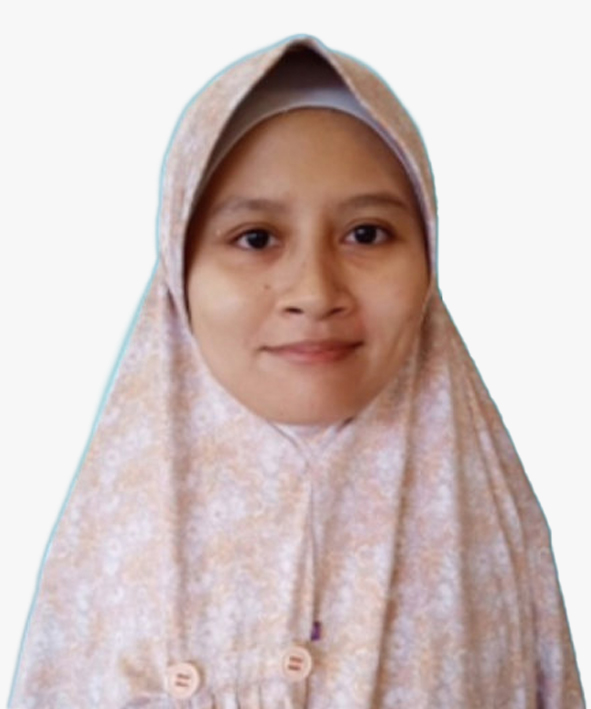The Role and Function of Single Parents in Special Needs Children to Combat Loneliness
Introduction: Caring for children with special needs often poses various challenges, including coping with stress in parenting. Single parents have an even increased vulnerability to stressful conditions in parenting, especially from feelings of loneliness and alienation. This literature review aims to obtain an effective intervention model for overcoming loneliness for single parents with special needs children. Methods: Various studies were searched with the keywords “role of a single parent,” “function of a single parent,” “children with special needs,” and “loneliness.” Selected studies are evaluated and critically reviewed. Results: Various challenges of parenting children with special needs include stigma, efforts to overcome communication and behavior problems of children, adjustments to parenting according to special needs conditions, economic burdens, and intrapersonal problems of single parents. These challenges can be significant stressors that further degrade the quality of life of single parents and their children. However, they can be opportunities for personality development and parenting skills through self-care efforts and seeking psychiatric help, including efforts to find a community that understands the experience of being a single parent. Conclusions: Efforts to help single parents cope with loneliness include improving self-efficacy, emotional stability, positive parenting, and social intelligence by being part of a supportive community.
Keywords: Single Parent, Children, Special Needs, Loneliness, Psychological Wellbeing
INTRODUCTION
A single parent is a man or woman who lives alone caring for his child(s). Naz Iram and Fatimah Kushnood (2020) stated that this happened due to the death of a spouse or divorce or a woman who experienced an unwanted pregnancy[1]. Single parents care for and raise their children without help from their partners and will have a combination of roles as the roles of father and mother, for example, business in the economic sector in meeting various household needs while carrying out the care of their children[2]. Caring for children with special needs often poses various challenges, such as attention to aspects of child growth and development that are different from typical child growth and development milestones and determining the best efforts to overcome various problems related to children's special needs conditions. These challenges in parenting efforts often lead to parenting stress. Single parents have an even increased vulnerability, especially due to feelings of solitude and alienation.
The purpose of this study is to determine the details of the role and function of effective single parents, as well as assistance in the form of proposed effective intervention models in overcoming loneliness for single parents who have children with special needs, so this study seeks to answer various questions such as: 1) What are the roles and functions of single parents who have children with special needs? 2) What are some challenges and potential of single parents with special needs children? 3) How do interventions address loneliness in single parents with children with special needs?
REVIEW
Based on the search keywords "role of a single parent," "function of a single parent," "children with special needs," and "loneliness" on literature search platforms such as PubMed, Psychiatry Online, and Google Scholar, a total of 197 studies were obtained, and after conducting a selection process, 20 studies were obtained as the basis for the preparation of this literature review.
Roles and functions of single parents of children with special needs
Studies by Cantwel-Barti (2009), O'Neil (2004), and Gupta & Kaur (2010) showed that parents with children with special needs often felt trauma, sadness, feelings of guilt, rejection, tension, and sometimes had ideas to the point of harming their child or committing suicide[3], although this sometimes varied from family to family and could show potential adaptation for parents[4].
In the aspect of gender roles, single parents will develop a variety of roles. Things that may be socioculturally viewed/expected as certain gender roles in society, e.g., domestic tasks at home (female/maternal role) and the role of the head of family who earns a living by working outside the home (male/father role)[2]will all become integral in the role of single parents. Single parents also need to motivate their other child(s), who have typical growth and development, to help their siblings with special needs[3]. Parents need to invite siblings of children with special needs to discuss anxiety conditions felt as siblings, various behaviors that show rejection and even aggressiveness, sadness because they feel inattentive, develop an attitude of compromise, develop an attitude of compassion for parental sacrifice, overcome negative emotional problems, and embracing living with a disabled sibling[5].
Single parents guide the development of the child's optimal potential[2]. Something that will be very helpful is the active participation of the community. The social model of disability theory emphasizes the importance of eliminating significant differences between disability conditions and the general public by creating inclusive communities that accommodate the various needs of children with special needs[3]. The form of group support for single parents will be very meaningful if it pays attention to increasing parenting confidence, full support discussion, openness, and reflection[6]. Various topics often discussed in the community are feeding, types of food for infants and children, breastfeeding processes, equipment products for infants and children, toilet training, and sleep. Parents are expected to provide constructive comments to each other actively[7]. The openness of single parents in collaboration with the community will greatly help better parenting functions for their children.
Challenges and potential of single parents of children with special needs
Various challenges that single parents often face are adjustment of parenting children with special needs, the stress in parenting can experience physical and emotional fatigue when carrying out multiple parental roles, the anxiety of the inability to provide various needs for children, various psychiatric medical processes that must be carried out by children (the process of determining diagnosis, challenging behavior, continuous intervention, various comorbid conditions and complications that can be occurred), financial problems, conflicts between work and care, housing availability, feelings of uncertainty about parent future and the future of his/her child, pressure from the environment including extended family, facing stigma, social isolation, and feelings of loneliness[1]-[3],[8]-[11].
The recent pandemic showed even greater mental health challenges for parents of children with special needs, including single parents. When single parents are infected with COVID-19, they feel very isolated, and it is very difficult to ask for help from other people or other families because of their fears of being infected. At the same time, they must still pay attention to their children[1][12][13]
In addition to the existing challenges, the potential of single parents with children with special needs is: getting the opportunity to
W. Djap, A. Mustikasiwi, O. Hermawati, D. Irawan, and E. Santosa, “The Resilience of Single Mothers with Special Needs Children in Supporting Their Education and Fulfilling Their Needs During The COVID-19 Pandemic,” IJDS Indones. J. Disabil. Stud., vol. 8, no. 02, pp. 425–439, Nov. 2021, doi: 10.21776/ub.ijds.2021.008.02.10.
C. Tuhuleuw, “The Wings of an Angel: The Portrayal of a Single Mother’s Struggles to Raise her Down Syndrome Daughter Seen from Gender Role Theory,” Faculty of Language and Arts Satya Wacana Christian University, 2019.
T. Antwi, “The Unplanned Journey: Challenges of Parents of Children Living with Disabilities in Ghana,” Psychology, vol. 14, no. 04, pp. 635–655, 2023, doi: 10.4236/psych.2023.144033.
C. Prosser, “We very much planned our life with an idyllic sense,” Cardiff University, Cardiff, UK, 2019.
S. Park, W. Ryu, and H. Yang, “A Study on the Life Experiences of Adolescents Who Grew up with Younger Siblings with Developmental Disabilities: Focusing on Phenomenological Analysis Methods,” Brain Sci., vol. 11, no. 6, p. 798, Jun. 2021, doi: 10.3390/brainsci11060798.
H. Smart, R. Lodge, and J. Lusher, “Experiences of Parenting Multiple Expressions of Relationally Challenging Childhood Behaviours across Contexts,” Encyclopedia, vol. 3, no. 2, pp. 549–560, Apr. 2023, doi: 10.3390/encyclopedia3020039.
M. A. Hom, C. Chu, M. L. Rogers, and T. E. Joiner, “A Meta-Analysis of the Relationship Between Sleep Problems and Loneliness,” Clin. Psychol. Sci., vol. 8, no. 5, pp. 799–824, Sep. 2020, doi: 10.1177/2167702620922969.
D. J. Baumgardner, “Social Isolation Among Families Caring for Children With Disabilities,” J. Patient-Centered Res. Rev., vol. 6, no. 4, pp. 229–232, Oct. 2019, doi: 10.17294/2330-0698.1726.
L. A. Brown, “Exploring How Black Parents Raising Autistic Children Manage Stress,” Faculty of North Carolina State University, 2023.
N. Hiekel and M. Kühn, “Mental Health before and during the COVID-19 Pandemic: The Role of Partnership and Parenthood Status in Growing Disparities between Types of Families,” J. Health Soc. Behav., vol. 63, no. 4, pp. 594–609, Dec. 2022, doi: 10.1177/00221465221109195.
A. Alemu, “Experience of Appraisal, Stress and Adaption of Parents Having Children with Down syndrome: The case of Ethiopian Evangelical Church Mekane-Eyesus Center for Mentally Challenged Children,” The Institute of Agriculture and Development Studies, 2022.
M. M. and et al A. S. CohenMiller, C. Schachner, N. Segeral, P. Tan, A. Kisitu, “Academic Motherhood and COVID-19,” J. Mother. Initiat., vol. 11, no. 2, 2021.
B. Yılmaz, M. Azak, and N. Şahin, “Mental health of parents of children with autism spectrum disorder during COVID-19 pandemic: A systematic review,” World J. Psychiatry, vol. 11, no. 7, pp. 388–402, Jul. 2021, doi: 10.5498/wjp.v11.i7.388.
M. S. Heredia Gomez, “Coping and Hoping: Latino Parent Engagement Experiences in Early Childhood Special Education,” Mills College, 2021.
J. Lee, “Single-mother Led Families with Disabled Children in Aotearoa New Zealand,” Massey University, 2019.
E. G. Castillo et al., “Community Interventions to Promote Mental Health and Social Equity,” Focus (Madison)., vol. 18, no. 1, pp. 60–70, Jan. 2020, doi: 10.1176/appi.focus.18102.
K. Flanigan, “Does Psychological Mindedness Predict Parental Distress and Parent-Child Dysfunction in Mothers?,” The Faculty of The Chicago School of Professional Psychology, 2022.
K. L. Shaw, Creating Appreciation and Community Support for Mothers Caring for a Child with an Anxiety Disorder. New Zealand: Unitec Auckland, Aotearoa, 2021.
A. El-Osta et al., “How is the COVID-19 lockdown impacting the mental health of parents of school-age children in the UK? A cross-sectional online survey,” BMJ Open, vol. 11, no. 5, p. e043397, May 2021, doi: 10.1136/bmjopen-2020-043397.
A. Sharabi and D. Marom-Golan, “Social Support, Education Levels, and Parents’ Involvement: A Comparison Between Mothers and Fathers of Young Children With Autism Spectrum Disorder,” Topics Early Child. Spec. Educ., vol. 38, no. 1, pp. 54–64, May 2018, doi: 10.1177/0271121418762511.
Copyright (c) 2024 Royke Tony Kalalo

This work is licensed under a Creative Commons Attribution-ShareAlike 4.0 International License.
1. Copyright of this journal is possession of the Author, by the knowledge of the Editorial Board and Journal Manager, while the moral right of the publication belongs to the author.
2. The journal allows the author(s) to retain publishing rights without restrictions.
3. The articles are published under a Creative Commons Attribution Share-Alike (CC BY-SA) license. Many research funding bodies prefer the CC BY-SA license because it allows for maximum dissemination and re-use of open access materials. Users are free to share (copy, distribute, and transmit) and remix (adapt) the contribution under this license, including for commercial purposes, as long as they attribute the contribution in the manner specified by the author or licensor.




























